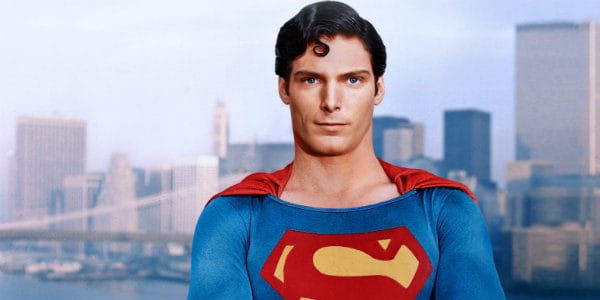
After a rocky start to its Comic Book Cinematic Universe, Warner Bros. seems to have settled down. Batman v Superman and Justice League underperformed and flopped, respectively, but Wonder Woman soared and Aquaman became a billion-dollar earner. Shazam! failed to make bank but its reputation grows on home video and a sequel has already been announced. That’s the kind of movie DC should have been making in the lead-up to Justice League, instead of bull-rushing toward a team-up movie when no one cared about the members of the team.
But I digress.
With Wonder Woman 2 coming next year and Batman the year after that, Warner Bros has survived their initial bumps and are ready to blaze forward with more and more (and more) comic book movies. One name is missing, however. Where is Superman? Why is there no sign of the Man of Steel?
Whatever happened to the Man of Tomorrow?
To answer that question we must first answer this one: “Why does Warner Bros seem to struggle so much with making a Superman movie work?” The reason is three-fold and moving past these three road blocks will allow a proper, modern, Superman movie to take shape. The Man of Steel is supposed to be the anchor of the DC universe. Batman will always be the most popular character, but Superman is the flagship. So what does Warner Bros. need to do to make a worthy Superman movie?
They can…
Stop Being Slaves to the Past
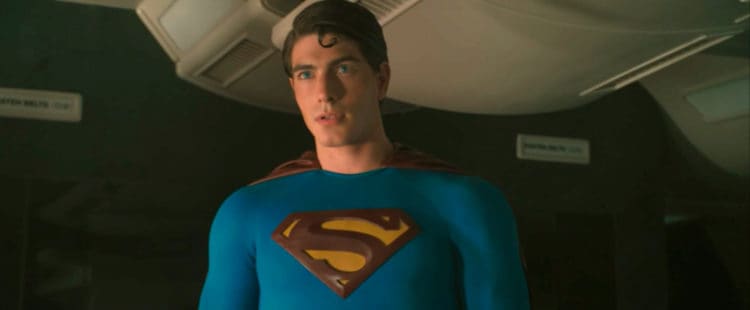
Superman Returns tried to reboot the Man of Steel for a modern age but the approach was to make a sequel to 1980’s Superman II, pretending that Superman III and IV didn’t exist. Today, such a writing gimmick is not unheard of (Rocky Balboa and Halloween 2018 are two that come to mind), but at the time it was novel. Everyone was familiar with the Dick Donner Superman movie and even though the Dick Lester follow-up was a lesser film, it made big bucks and established a franchise. Christopher Reeve’s portrayal of Superman became instantly iconic and the measuring stick for all others that followed. On paper you can see why they would want to latch on to that established continuity and goodwill from moviegoers. On the other hand, Reeve wasn’t available, the story told between Superman I-II was finished, and after twenty-five years, Reeve’s Superman was beloved as a novelty of a bygone era.
Trying to repeat the same charm and quaintness in 2006 with a new actor emulating Reeve was doomed to fail, and it did.
Zack Snyder deserves credit for trying to tell a new kind of Superman story with the Man of Steel, but after the middling response to it and Batman v Superman, the studio insisted things revert to the aw shucks style made famous by Reeves. This tonal shift from moody and borderline depressed to smiling and witty happened within the course of half a movie. It felt forced because it was. Warner Bros. panicked and insisted the character “go back to what worked…forty years ago.”
The only way Superman is going to strike a chord with modern audiences is if he’s allowed to be his own character. The Man of Steel existed long before the late, great Chris Reeve donned the blue and red. Reeve didn’t invent that portrayal of Superman; he merely reflected what the character was like in the comics at the time. Let the next Superman movie do the same. Let go of the past and make Superman a modern hero.
Now, of course, Snyder fans will be quick to say “that’s what Zack did!” To which I will reply…
Stop Making Him So Darn Sad
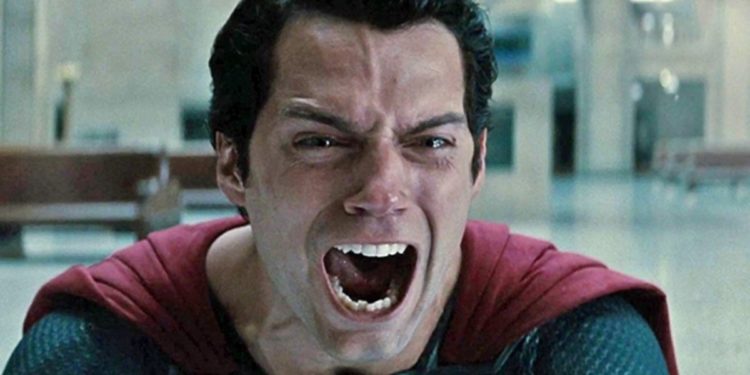
Snyder didn’t fail because he tried to make a modern Superman. Actually, that was the best part of the Man of Steel: How would the post-9|11 world react to an all-powerful alien coming to live on earth (as an American-immigrant, no less). As it turns out, we would probably be jerks to him. That part was strong, at least on paper. The problem came in the execution. Snyder failed because he made Superman mopey, angsty, conflicted, and often just…sad.
Snyder apologists will point to the intended three-movie storyline beginning with Man of Steel, climaxing with Batman v Superman, and resolving with Justice League. The idea, so it goes, was to introduce Superman and all his inner turmoil being mistrusted by the people of earth. That mistrust would then be manifested in the form of Batman, who sees him as the ultimate supervillain to take down. Finally, after dying, the people would come around to see what a good guy he was all along and then he’d be resurrected in time to stop the big bad from blowing up the planet or something, taking his place as the hero that everyone wants and needs.
Sounds good on paper.
It failed because audiences simply weren’t patient enough to sit through a movie where people don’t like Superman, and another movie where Batman tries to kill Superman. By the time the third movie came out, the public was so turned off by the story being told they simply skipped the payoff, giving Justice League a box office performance of 200mm domestic (A.K.A. as much money as the first Avengers movie made in its opening weekend). Superman can be modern and optimistic and audiences seem to prefer him that way. They don’t want to see him be the central character in a three-film saga of sadness; they want the man of tomorrow…today.
Stop Being Afraid to Go Bananas
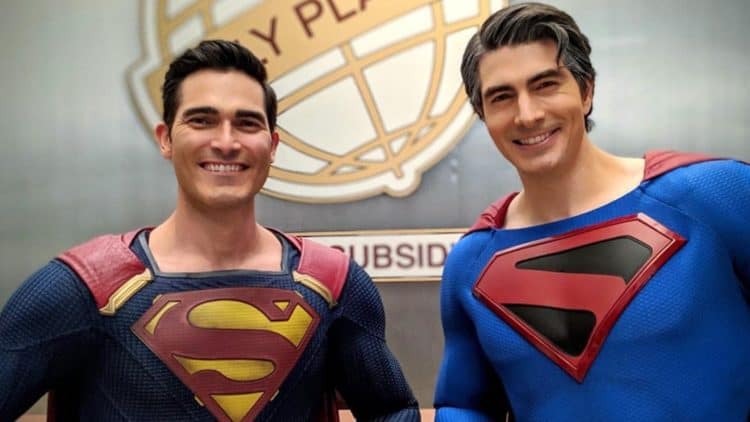
One of the common criticisms of Superman is “he’s so overpowered there’s no drama” and “you can’t hurt him without a magic green rock so there’s no drama.” On the contrary, Superman has a ton of enemies in his rogue’s gallery that are more than capable of doing him damage (without the need for kryptonite). But, other than Zod, none have really been explored on film. My worry is that, with the failure of Justice League, Warner Bros might move away from the crazier side of Superman’s lore. That would be a mistake.
You know what’s crazy? It’s crazy that Marvel was able to take a bunch of B-characters and build them up over the course of a decade, with box office hit after hit, until paying off their story in the most mind-bending, time-twisting, universe-spanning, team-up movie of all time. And not only did Endgame give comic book fans what they never thought they’d see (the occasional universe-shattering crossover mega-series adapted to film) but they managed to turn it into the biggest movie in box office history.
Meanwhile Justice League tried to release their big team up movie with big, cosmic implications as the fourth movie in their shared universe. Endgame was the MCU’s twenty-second movie. You know what their fourth movie was?
Thor.
Kevin Feige’s patience is what won the day for Marvel. DC’s impatience is what handicapped them out of the gate. The temptation for Warner Bros is to learn the wrong lesson. Instead of saying “we tried to go crazy with Darkseid and Steppenwolf and motherboxes, etc, and no one came to see it!” the lesson to learn should be “tell your story but take your time. Be patient.” Fans will embrace the wild and crazy side of comic book stories if you build up their tolerance and ease them into it. Ghostbusters begins with a single librarian-ghost that just wants people to shush in the library. The movie ends with a skyscraper-tall marshmallow man wreaking havoc on New York City. It got from point-A to point-F by slowly ramping up the crazy until the audience was willing to accept anything.
DC’s TV department is in the midst of a huge crossover event, Crisis on Infinite Earths, which brings multiple heroes from different universes together to save the day. It’s DC’s biggest “universe-shattering crossover mega-series” in their printed arsenal and it’s being adapted, not as a multi-billion dollar-earning feature film, but as a small-budgeted made-for-TV episode series.
Something very wrong occurred along the way for that to happen.
WB need not learn the wrong lessons from Justice League. Don’t shy away from Superman’s crazier, more cosmic villains. Embrace them. Use them. Use Superman to back-door those elements into the wider comic book universe so that when it’s time to try again at a mind-bending, time-twisting, universe-spanning, team-up movie, audiences will be conditioned and ready to embrace them as well.
 Follow Us
Follow Us


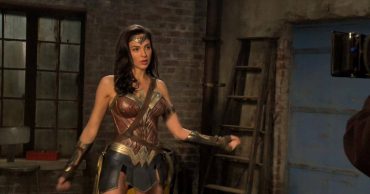


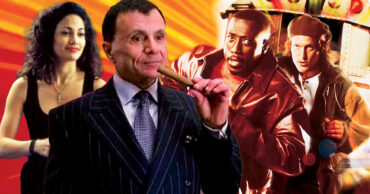
I registered especially to comment. I must tell you, I never ever do this.
Everything I have been thinking is ALL in this brilliant, well articulated piece.
Thanks for condensing a brilliant vision which all the big guns in WB have failed to see for the past 2 decades. How that is even possible, it’s hard to believe, but quite for real, they have missed the most obvious elements of the DC universe that fans like me grew up worshipping.
So sad to see it all go down the drain by such poor, poor handling of the DC legend. And what’s DC themselves doing in all this? Where is their Kevin Feige.
I do hope they don’t get cold feet. Take a cue from MCU (they did but due to a lack of vision, it all went awry).
I hope they come around and stop apologising for their heroes, and start celebrating them.
Thanks again for such an apt handling of this subject.